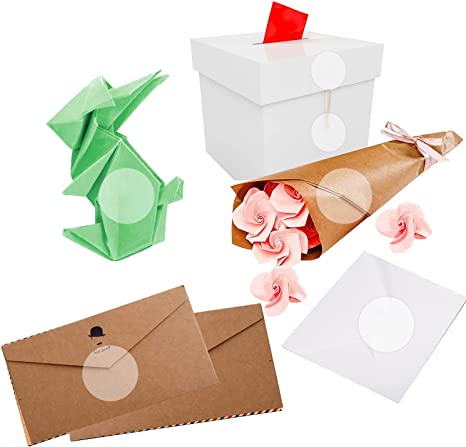In today’s eco-conscious market, even the smallest packaging decisions can have a lasting impact—on both the environment and your brand image. Stickers and labels, while often overlooked, are essential components of product packaging, branding, and logistics. However, many traditional stickers are made from petroleum-based plastics and synthetic adhesives, which are neither compostable nor recyclable.
As consumers demand more sustainable options, brands are rethinking their labeling strategies. Should you choose biodegradable stickers that break down naturally, or recyclable ones that can be processed through existing recycling systems? Understanding the difference is crucial to aligning your packaging with your sustainability goals.
What Are Biodegradable Stickers?
Biodegradable stickers are designed to decompose through natural biological processes, leaving behind no harmful residue. These labels are made from plant-based materials such as PLA (polylactic acid), wood pulp (cellulose film), sugarcane fiber, and kraft paper. When exposed to composting conditions—heat, moisture, and microorganisms—these materials break down into water, CO₂, and organic matter.
Biodegradable Stickers' Material Composition
At YITO PACK, our biodegradable stickers are crafted from certified compostable substrates. These include clear PLA film stickers for sleek branding, cellulose-based fruit labels for direct food contact, and kraft paper stickers for a more rustic, natural look. All adhesives and inks used are certified compostable as well, ensuring complete material integrity.
Certifications That Matter
Choosing truly biodegradable labels means looking for the right third-party certifications. Standards such as EN13432 (Europe), ASTM D6400 (USA), and OK Compost (TÜV Austria) ensure that products meet strict industrial or home compostability requirements. YITO PACK proudly offers sticker solutions that comply with these international benchmarks, giving our clients peace of mind.
Where Biodegradable Stickers Shine?
Biodegradable stickers are ideal for products that emphasize natural, organic, or zero-waste values. They are commonly used on compostable food packaging like PLA pouches and fiber-based trays, fresh fruit labels, personal care jars, and even tobacco or cigar packaging that requires a sustainable touch.
What Are Recyclable Stickers?
Recyclable stickers are those that can be processed through standard recycling streams, usually along with paper or plastic packaging. However, not all “paper” or “plastic” stickers are truly recyclable. Many contain non-removable adhesives, plastic coatings, or metallic inks that disrupt recycling systems.
How Recyclability Works
To be recyclable, a sticker must separate cleanly from the substrate or be compatible with the recycling stream of the packaging material it’s attached to. Paper-based stickers with water-soluble adhesives are often the most recyclable. Plastic-based stickers may be recyclable only under specific conditions, and labels with aggressive glue or lamination may be discarded entirely during sorting.
When to Use Recyclable Stickers
Recyclable labels are best for supply chain and shipping needs, where longevity and print clarity matter more than compostability. They’re also suitable for e-commerce packaging, warehouse inventory, and consumer products where the primary packaging is itself recyclable (like cardboard boxes or PET bottles).
Biodegradable vs Recyclable Stickers – What’s the Real Difference?
The core difference lies in what happens after your product is used.
Biodegradable stickers are designed to disappear. When composted properly, they degrade naturally without polluting soil or water. This makes them ideal for food, health, or organic products that are already packaged in compostable materials.
Recyclable stickers, on the other hand, are made to be recovered. If separated correctly, they can be processed and reused, which reduces resource demand. However, the actual recycling of stickers depends heavily on local infrastructure and whether the adhesives interfere with the process.
Environmental impact is also a point of difference. Biodegradable labels reduce landfill accumulation and offer a clear zero-waste solution. Recyclable labels contribute to circular economy principles but may not achieve end-of-life benefits unless disposed of properly.
From a business standpoint, cost and shelf life are also considerations. Biodegradable stickers may carry slightly higher material costs and have shorter shelf lives due to their natural composition. Recyclable labels often have lower unit prices and are more stable under diverse environmental conditions.
How to Choose the Right Sticker Type for Your Business
Know Your Product & Industry
If your product is food, cosmetics, or health-related—especially organic or compostable items—a biodegradable sticker aligns with your product’s values. If you’re shipping in bulk, labeling boxes, or selling non-compostable items, recyclable stickers offer practical sustainability.
Align with Your Brand’s Sustainability Goals
Brands targeting “zero-waste” or home-compostable packaging should not pair their eco materials with plastic stickers. Conversely, brands that emphasize carbon footprint reduction or recyclability may benefit from labels that support curbside recycling programs.
Balance Budget and Values
Biodegradable labels may cost more, but they tell a stronger story. In B2B and B2C channels alike, customers are willing to pay a premium for sustainable integrity. Recyclable stickers, while more cost-efficient, still allow your brand to take a greener step in the right direction.
Sustainable stickers are more than a trend—they’re a reflection of your brand’s values and responsibility. Whether you choose biodegradable or recyclable options, making an informed decision will position your product as both innovative and environmentally conscious.
Ready to label sustainably? Contact YITO PACK today to explore our full range of compostable and recyclable sticker solutions tailored to your business.
Related Products
Post time: Aug-04-2025






